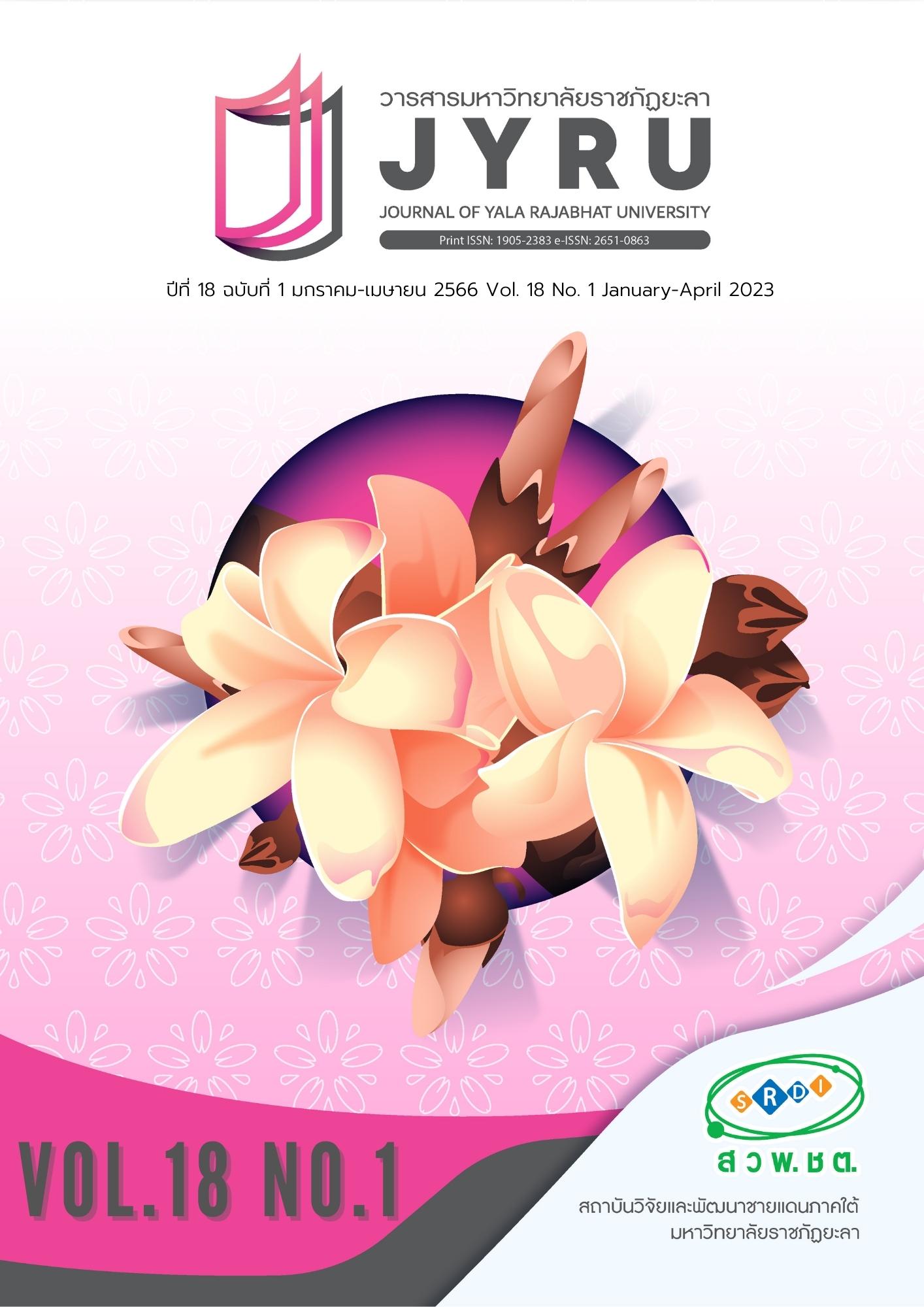การจัดการเรียนรู้โดยใช้ MCIS เพื่อพัฒนามโนมติ เรื่อง แสงและทัศนอุปกรณ์ของนักเรียนชั้นมัธยมศึกษาปีที่ 3
Main Article Content
บทคัดย่อ
แนวคิดทางวิทยาศาสตร์เกี่ยวกับเรื่องแสงและทัศนอุปกรณ์เป็นพื้นฐานสำคัญในการเรียนรู้แนวคิดที่ซับซ้อนในเรื่องอื่นๆ ทางวิทยาศาสตร์ แต่การจัดการเรียนรู้รูปแบบเดิมไม่สามารถส่งเสริมให้นักเรียนเกิดแนวคิดที่ถูกต้องสมบูรณ์ได้ ดังนั้นงานวิจัยนี้จึงทำการศึกษาแนวทางการจัดการเรียนรู้โดยใช้ MCIS และศึกษาการพัฒนามโนมติ เรื่อง แสงและทัศนอุปกรณ์ ภายหลังได้รับการจัดการเรียนรู้โดยใช้ MCIS ใช้รูปแบบการวิจัยเชิงปฏิบัติการในชั้นเรียน จำนวน 3 วงจร มีผู้เข้าร่วมวิจัยคือ นักเรียนชั้นมัธยมศึกษาปีที่ 3 ภาคเรียนที่ 1 ปีการศึกษา 2563 จำนวน 40 คน เครื่องมือที่ใช้ในการวิจัย ได้แก่ แผนการจัดการเรียนรู้ แบบสังเกตพฤติกรรมการจัดการเรียนรู้ แบบบันทึกกิจกรรม และแบบวัดมโนมติ วิเคราะห์ข้อมูลด้วยวิธีการวิเคราะห์เชิงเนื้อหาและสถิติพื้นฐาน ผลการศึกษาพบว่า แนวทางการจัดการเรียนรู้โดยใช้ MCIS พัฒนามโนมติของนักเรียนผ่านการสร้าง และปรับปรุงแบบจำลองเป็นลำดับขั้นอย่างต่อเนื่อง โดยอาศัยการสืบเสาะหาความรู้จากหลักฐานเชิงประจักษ์ และสถานการณ์จำลองที่มีลักษณะเป็นการทดลองเสมือนจริงในรูปแบบแอพพลิเคชัน ซึ่งนักเรียนมีมโนมติทางวิทยาศาสตร์ที่สมบูรณ์เกี่ยวกับเรื่อง การสะท้อนกลับหมดมากที่สุด รองลงมา คือ การสะท้อนของแสง การกระจายแสงของแสงขาว การเกิดภาพ จากเลนส์ การหักเหของแสง การเกิดภาพจากกระจกเงา และการเกิดภาพของทัศน์อุปกรณ์ ตามลำดับ จากผลการศึกษานี้สามารถใช้เป็นแนวทางในการออกแบบและพัฒนาการจัดการเรียนการสอนในเนื้อหาวิชาที่มีลักษณะเช่นเดียวกันเพื่อส่งเสริมให้นักเรียนมีแนวคิดทางวิทยาศาสตร์ที่ถูกต้องสมบูรณ์ อันจะส่งผลให้นักเรียนเข้าใจในแนวคิดขั้นสูงและสามารถพัฒนาความคิดระดับสูงต่อไปได้
Article Details

อนุญาตภายใต้เงื่อนไข Creative Commons Attribution-NonCommercial-NoDerivatives 4.0 International License.
บทความ ข้อมูล เนื้อหา รูปภาพ ฯลฯ ที่ได้รับการเผยแพร่ในวารสารมหาวิทยาลัยราชภัฏยะลานี้ ถือเป็นลิขสิทธิ์ของวารสารมหาวิทยาลัยราชภัฏยะลา หากบุคคลหรือหน่วยงานใดต้องการนำทั้งหมดหรือส่วนหนึ่งส่วนใดไปเผยแพร่ต่อหรือกระทำการใดๆ จะต้องได้รับอนุญาตเป็นลายลักษณ์อักษรจากวารสารมหาวิทยาลัยราชภัฏยะลาก่อนเท่านั้น
เอกสารอ้างอิง
Aniwatanawong, P. (2019). Evaluating the impact of model-based inquiry with model-evidence link on grade 11 students’ scientific explanation of electrolyte and non-electrolyte solution. Walailak Journal of Learning Innovations, 5(1), 65-83. (in Thai).
Baek, H., Schwarz, C.V., Chen, J., Hokayem, H.F., & Zhan, L. (2011). Engaging elementary students in scientific modeling: The MoDeLS fifth-grade approach and findings. In: Khine, M. & Saleh, I. (eds), Models and Modeling: Cognitive tools for scientific enquiry (pp.195-218). Dordt, The Netherlands: Springer.
Campbell, T., Oh, P.S., & Neilson, D. (2012). Discursive modes and their pedagogical functions in model-based inquiry (MBI) Classrooms. International Journal of Science Education, 34(15), 2393-2419.
Chatwan, T. (2018). Model-based learning integrated with augmented reality for enhancing 10th grade students’ mental models in covalent bond topic. Master’s Thesis. Naresuan University. (in Thai).
Kanamuang, N. & Jantrasee, R. (2018). Model-centered instruction sequence of evaporation on grade 10 students’ scientific modeling. Journal of Science & Science Education, 1(1), 86-96.
Kaewkhong, K., Mazzolini, A., Narumon Emarat, N., & Arayathanitkul, K. (2010). Thai high-school student’s Misconceptions about and models of light refraction through a planar surface. Physics Education, 45(1), 91-107.
Khaemmani, T. (2014). Pedagogical science: Knowledge for effective learning process (18th ed.). Bangkok: Chulalongkorn University. (in Thai).
Khanoie, T. (2019). Effect of inquiry approach embedded with peer instruction on light and vision concepts of grade 11 students. The Golden Teak: Humanity and Social Science Journal, 25(4), 152-162.
Kijkuakul, S. (2014). Learning management direction for teacher in 21st century. Phetchabun: Juldiskarnpim. (in Thai).
Najang, K. (2011). Effects of using model-centered instruction sequence on ability in making scientific model and concepts of laws of motion and types of motion of upper secondary school students. Master’s Thesis. Chulalongkorn University. (in Thai).
Pechpong, S. (2014). The effects of the 7E science inquiry learning activities integrated with the concept map in the topic of light for mathayomsuksa II students. Master’s Thesis. Naresuan University. (in Thai).
Praphanwit, R. (2017). The effects of a model-centered instruction sequence (MCIS) in digestive system lesson on 10th grade students’ conceptual understandings and scientific reasoning. Master’s Thesis. Naresuan University. (in Thai).
Sangpradit, T. (2015). Student alternative conceptions in physics. Journal of Education Naresuan University, 16(4), 202-209. (in Thai).
Simpson, W.D. & E.A. Marek. (1998). Understanding and misunderstanding of biology concepts held by students attending small high schools and students attending large high schools. Journal of Research in Science Teaching, 25(5), 361-374.
Suchairut, N. (2015). Development of an instructional model based on model-based inquiry and context-based learning approaches to promote scientific reasoning and transfer of learning abilities of lower secondary school students. Doctoral dissertation. Chulalongkorn University. (in Thai).
Wade-Jaimes, K., Demir, K. & Qureshi, A. (2018). Modeling strategies enhanced by metacognitive tools in high school physics to support student conceptual trajectories and understanding of electricity. Science Education, 102, 711-743.
Widiyatmoko, A. & Shimizu, K. (2018). Literature review of factors contributing to students’ misconceptions in light and optical instruments. International Journal of Environmental & Science Education, 13(10), 853-863.


